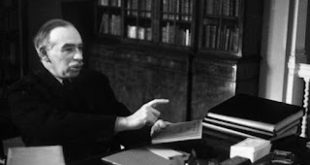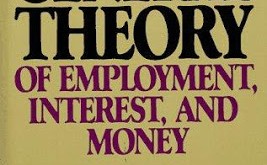New working paper by Tom Palley. From the abstract:Keynes' General Theory was a massive step forward relative to classical economics, but it was also a step backward in its denial of the conflictual nature of capitalism. There is need to understand Keynes' technical contributions regarding the workings of monetary economies, but also need to understand the flaws within his thinking and the consequences thereof. Keynes made a fundamental contribution elucidating the mechanism of effective...
Read More »Keynes’ intellectual influence: the theorist vs the pamphleteer
Keynes' 1933 and 1929 pamphlets, respectively One of the many unfair criticisms of Keynes' General Theory (GT) is that is badly written or somewhat incomprehensible. Note that Keynes started to write it in 1932, four years into the Depression, and two years after publishing the Treatise, which he probably thought was going to be his Magnus Opus. In other words, by the time he started to write the GT the worst part of the Depression was coming to an end (the UK had abandoned gold in 1931, and...
Read More »JKH — The General Theory of Employment, Interest, and Money – Chapters 11 and 17
In a recent post, David Glasner tackles an aspect of John Maynard Keynes’ General Theory of Employment, Interest, and Money. In Chapter 11 of the GT (The Marginal Efficiency of Capital), Keynes questions the meaningfulness of the Fisher equation, suggesting that the decomposition of nominal return into its real and expected inflation components may have a (rough) connection to the marginal efficiency of capital but not to the interest rate. David claims this view is inconsistent with...
Read More »Lauchlin Currie’s review of Keynes’ General Theory
Curried Keynesianism in action The review with an intro can be read here (or here). Currie is often considered the first Keynesian in the Roosevelt administration (I suggested here that, while not a professional economist, that merit goes to Eccles), and was also the first to work in the White House, before the Employment Act and the creation of the Council of Economic Advisers (CEA). He was also later unjustly attacked as a Soviet spy, and Roger Sandilands has dealt with this here...
Read More »The relevance of Keynes’s General Theory after 80 years
By Thomas Palley, Louis-Philippe Rochon and Matías Vernengo*This year marks two important anniversaries in macroeconomics: the 80th anniversary of the publication of Keynes's The General Theory of Employment, Interest and Money (1936), and the 70th anniversary of Keynes's premature death, at the age of 63. To mark these anniversaries, the first issue of the fourth year of the Review of Keynesian Economics is dedicated to Keynes.The issue contains a symposium of papers titled ‘The...
Read More » Heterodox
Heterodox




